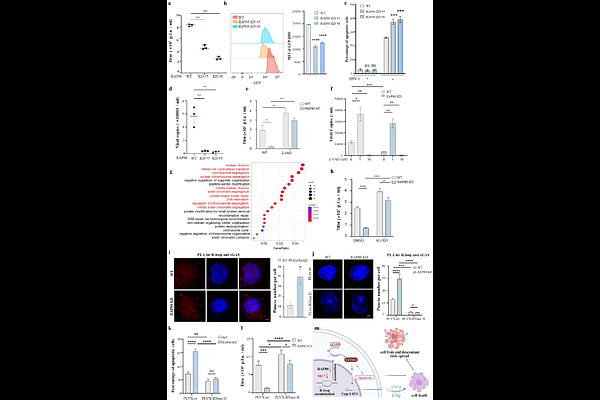HSV-1 orchestrates host RAP80 ubiquitination by ICP0 and UL36USP to promote viral survival

HSV-1 orchestrates host RAP80 ubiquitination by ICP0 and UL36USP to promote viral survival
Wang, J.; Deng, Y.; Zhu, D.; Chi, Y.; Liu, F.; Zheng, C.; Xing, D.; Zheng, X.
AbstractHerpes simplex virus 1 (HSV-1) is a widespread human pathogen that establishes lifelong infections, ubiquitination is crucial for HSV - 1 to interact with the host and regulate its life activities. But the mechanisms of how HSV-1 dynamically modulates host proteins at different infection stages to promote its own survival remains challenging. Here we identified DNA damage response protein RAP80 as a critical target of HSV-1 ubiquitination enzymes ICP0 and UL36USP throughout HSV-1\'s infection cycle. In early stages, RAP80 inhibits HSV-1 transcription by directly binding to the viral genome, blocking viral protein ICP4 binding to transcription factors. This interaction is regulated by phase separation via an intricate interplay between RAP80 and ICP0/ICP4. As infection progresses, the viral E3 ligase ICP0 degrades RAP80, dissolving phase separation, and allowing the formation of a mature viral replication compartment. In late infection stages, RAP80 is deubiquitinated by the viral deubiquitinase UL36USP, which restores cellular homeostasis and promotes HSV-1 survival. This process involves modulating the R-loop-cGAS-apoptosis pathway. These findings underscore the dynamic interplay between viral and host factors and the complex mechanisms used by HSV-1 to subvert host defenses, offering practical implications for the future development of antiviral strategies.